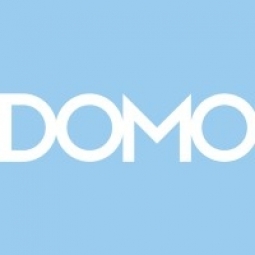Customer Company Size
Mid-size Company
Region
- Europe
Country
- Germany
Product
- Domo
Tech Stack
- Salesforce
- Google Analytics
Implementation Scale
- Enterprise-wide Deployment
Impact Metrics
- Productivity Improvements
- Cost Savings
Technology Category
- Platform as a Service (PaaS) - Data Management Platforms
Applicable Industries
- Telecommunications
- Finance & Insurance
Applicable Functions
- Sales & Marketing
- Business Operation
Use Cases
- Real-Time Location System (RTLS)
- Predictive Quality Analytics
Services
- Data Science Services
About The Customer
Verivox is one of Germany’s leading independent comparison portals, allowing customers to compare energy, telecommunications, insurance and finance products and switch instantly to the best provider for them. The Verivox tariff experts have been monitoring the markets for many years and helped more than 8 million customers to save over 2.1 billion Euro. From 2015, Verivox became part of the ProSiebenSat.1 Group, one of Europe’s leading media companies. In order to stay ahead of the competition, Verivox needed a solution that could provide accurate, transparent, democratised and easily accessible data from its website and business units.
The Challenge
Verivox, a leading independent comparison portal in Germany, needed a solution that could provide accurate, transparent, democratised and easily accessible data from its website and business units. One of Verivox’s main goals was to map the market as closely as possible - a huge challenge given the variety of sectors they cover. To achieve this, it needed constant, real-time access to data, where teams could monitor, report and make decisions that improve customer satisfaction, increase traffic and facilitate internal decision-making. Prior to Domo, Verivox needed to improve its democratised access to all data sourced from the website, third-party data sets and internal management systems. Employees would access different versions of the data sets, limiting transparency and accuracy.
The Solution
The business intelligence team at Verivox needed a solution that struck the balance between providing data for everyone, while ensuring that the data was governed and certified. The first step towards this was to utilise their own data warehouse built by the internal Data warehouse team. This meant that all data plugged in from the likes of Salesforce and Google Analytics, could be monitored and certified, before being redistributed to wider teams. In order to democratise the data housed in their data warehouse, Verivox brought in Domo to visualise the data plugged in from all departments. Using Domo’s content certification feature, Verivox’s BI team had the control to certify the data uploaded to Domo’s dashboard.
Operational Impact
Quantitative Benefit

Case Study missing?
Start adding your own!
Register with your work email and create a new case study profile for your business.
Related Case Studies.

Case Study
Real-time In-vehicle Monitoring
The telematic solution provides this vital premium-adjusting information. The solution also helps detect and deter vehicle or trailer theft – as soon as a theft occurs, monitoring personnel can alert the appropriate authorities, providing an exact location.“With more and more insurance companies and major fleet operators interested in monitoring driver behaviour on the grounds of road safety, efficient logistics and costs, the market for this type of device and associated e-business services is growing rapidly within Italy and the rest of Europe,” says Franco.“The insurance companies are especially interested in the pay-per-use and pay-as-you-drive applications while other organisations employ the technology for road user charging.”“One million vehicles in Italy currently carry such devices and forecasts indicate that the European market will increase tenfold by 2014.However, for our technology to work effectively, we needed a highly reliable wireless data network to carry the information between the vehicles and monitoring stations.”

Case Study
Vodafone Hosted On AWS
Vodafone found that traffic for the applications peak during the four-month period when the international cricket season is at its height in Australia. During the 2011/2012 cricket season, 700,000 consumers downloaded the Cricket Live Australia application. Vodafone needed to be able to meet customer demand, but didn’t want to invest in additional resources that would be underutilized during cricket’s off-season.

Case Study
SKT, Construction of Smart Office Environment
SK T-Tower is the headquarters of SK Telecom. Inside the building, different types of mobile devices, such as laptops, smartphones and tablets, are in use, and with the increase in WLAN traffic and the use of quality multimedia data, the volume of wireless data sees an explosive growth. Users want limitless Internet access in various places in addition to designated areas.










